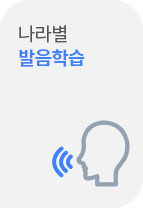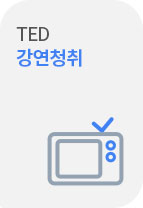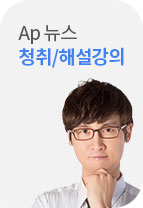└[고급]영자신문읽기 신문 속 다양한 세상 이야기를 이제 영어로 만나보세요!
Korean students’ scores take tumble on PISA assessment
2017-03-26
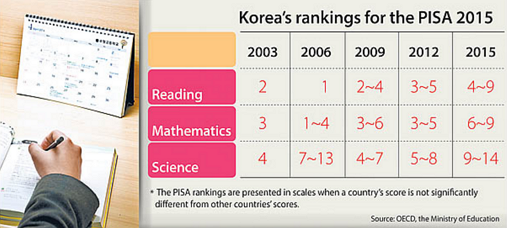
Korea’s rankings in the Program for International Student Assessment (PISA) 2015, published by the OECD on Tuesday, fell from 2012. It was the first time Korea missed the top three ranks in all three sectors: reading, mathematics and science.
PISA is a triennial survey of 15-year-old students around the world. Roughly 540,000 students took part in 2015, representing about 29 million 15-year-olds in 72 countries. In Korea, 5,201 students participated.
According to the report, Korea ranked between fourth and ninth in reading, “first-fourth” in mathematics and “ninth-14th” in science. Narrowing the results to the 35 OECD members, Korea ranked “third-eighth” in reading, “first-fourth” in mathematics and “fifth-eighth” in science.
The PISA rankings are presented in scales when a country’s score is not significantly different from other countries’ scores. So for reading, Korea’s score was only marginally different from countries ranked fourth to ninth.
Three years ago, Korea got “first-second” in reading, “first” in math and “second-fourth” in science.
Educational experts blame a growing gap between the performance of high and low achievers. According to the PISA report, Korea’s share of low achievers in all three subjects increased by 7.7 percent, while top performers remained steady.
“Korea’s PISA ranks have moved within narrow limits over the years,” said Koo Ja-ok, a researcher at the Korea Institute for Curriculum and Evaluation, “but this time the drop is bigger than ever.
“A rapid increase in the number of low achievers is to blame, but we will carry out research to find out the specific reasons.”
“An increase of poverty leads to more low achievers,” said Jung Jin-gon, an education professor at Hanyang University, “because some parents can’t support their children’s academics.” According to Statistics Korea, incomes among families in the bottom 10 percent of society saw their sharpest drops this year since 2003.
There is also a gap between boys and girls. On the average across OECD countries, the number of top performers in science and math is larger for boys. In Korea, however, girls outshone boys in science and math.
But Korean students were below average in their science engagement and motivation. Only 53.7 percent of Korean students said yes when asked if they were interested in science, far below the OECD average of 63.8 percent. The percentage of Korea students who said they enjoyed reading science books was 43.4 percent, below the average at 51.8 percent. Only 9.6 percent said they can easily interpret scientific information, under the OECD average of 20 percent.
“We’ve seen the trend of growing numbers of underachieving students in nationwide scholastic achievement tests,” said Kang Sung-chul, who heads the National Curriculum Policy Division at the Ministry of Education. “The central government should cooperate with district educational offices to support student who score below standard academic levels.”

| 번호 | 기사목록 | 날짜 | 조회수 |
|---|---|---|---|
| 60 |
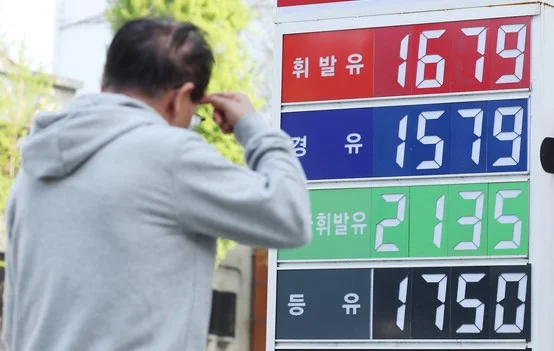 |
2024-04-19 | 2199 |
| 59 |
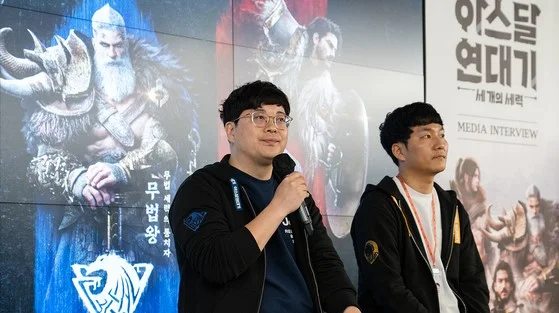 |
2024-04-18 | 4356 |
| 58 |
 |
2024-04-17 | 4295 |
| 57 |
 |
2024-04-16 | 4203 |
| 56 |
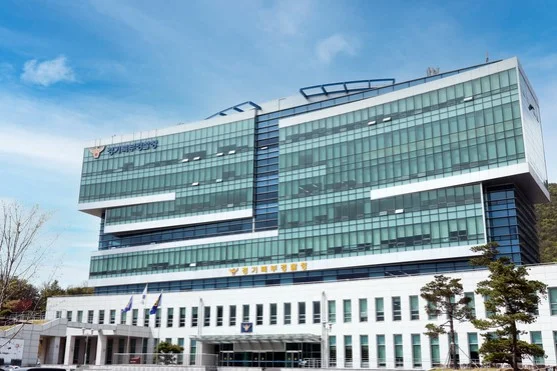 |
2024-04-15 | 4013 |
| 55 |
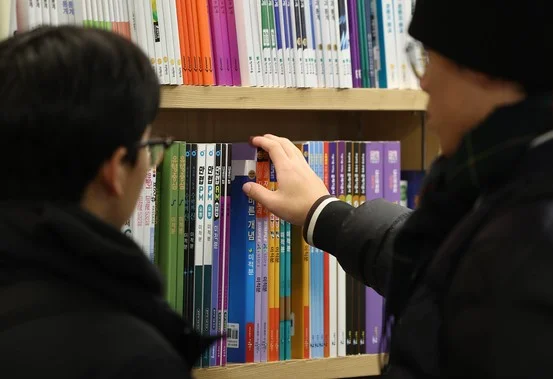 |
2024-04-14 | 3824 |
| 54 |
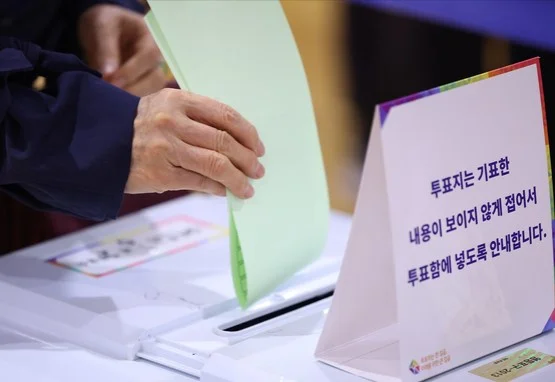 |
2024-04-13 | 3604 |
| 53 |
 |
2024-04-12 | 3936 |

















